
Kristy Bowen
"The low hum of pink satin"
Take a step back for a moment and try to gauge the literary world. Look to the past first, think back to your first exposure to serious literary, mainly poetry, in school. Who are you picturing? Whitman, Frost, Eliot, Thomas, Yeats, Keats, Lowell, Sandburg, Pound, and Dickinson. As you advance through memory, or perhaps thumb through that giant "Master's of American Literature" book from your first year at college, you will find that this ratio of male to female poets and writers has improved, but is still out of proportion. The voice of the female poet is no less powerful and passionate then the male, yet it continues to largely go unnoticed.
One Chicagoan who is leading the charge to correct this literary oversight is poet/publisher Kristy Bowen. She is the author of eight chapbooks and a collection, The Fever Almanac, with a couple more on the way. She is also the founder and editor of Wicked Alice, a quarterly literary journal. However, it is as founder/publisher/editor of Dancing Girl Press that she provides an outlet for the female poet. In past 3 years, Dancing Girl has published 29 handmade chapbooks, honoring the female voice.
Recently, Kristy took some time out from her various duties to answer a few of my questions.
Orange Alert (OA): When did you first discover you wanted to a poet?
Kristy Bowen (KB): I think I was maybe 13 or 14 when I first made those ridiculous efforts at poetry, writing stuff about my cats and tragic teen romance. That was really the first time I was aware of poetry as a genre, and that, oddly I was pretty good at rhyming things. I made vague efforts for a couple years after that. After I gave up the idea of being a marine biologist my freshman year of college (I'm so bad at bath it's ridiculous), and decided to study English, I started studying writer's markets and sending out these spare, skinny, political and angst filled undergrad poetry. I went through another Emily Dickinson-inspired rhyming stage, then went on to study literature at the grad level, with an intention of getting a phD and teaching. At some point in the midst of it, my writing got better, more focused. I was reading more, and somehow, suddenly, just GOT it. After that point, it wasn't just something I was going to be doing on the side while pursuing a teaching career, but I wanted it to be the center. I didn't want to spend the next few years galloping the rough literature tenure track and doing scholarship, but instead wanted to find some sort of non-annoying bookish job that wouldn't sap all my energy and would give me time to write. I think that decision was sort of the moment I decided to actually BE a poet. Granted I've since gone back to school for my MFA and have plans to teach community workshops, but I somehow feel more like those are extensions of my poet-self and not at odds with it, or somehow impeding it like a more traditional scholarly career may have.
OA: With all of your various projects, Wicked Alice, Dancing Girl Press, and so on, I'm sure you are always short on time. How much time do you dedicate to writing each day? Why is this time important to you?
KB: I tend to collect notes for poems all the time. Sitting at work, on the train or bus, surfing, when I'm reading things. At some point, I will sit down and draft something. Play with it for a few days until I'm decided it's finished. I go hot and cold. There have been periods of time when I'm drafting a poem a day. Sometimes, when I get busier with other stuff, it's a poem a month. Now, it's about a poem a week, which is a nice middle ground. I've recently developed a weekly system to stay focused (dgp business on Monday, wicked alice on Tuesday, my own writing on Wednesday) but I'm writing all the time and plotting things out in my head.. I have to admit, my construction of poems comes easier these days, not sure why. Of course, I'm suspicious of that sort of ease as well..
OA: You formed Dancing Girl Press in 2004, how was the decision made to focus solely on female authors? What has the general response been to this decision?
KB: I would say overwhelmingly positive, though some recent remarks by male authors have put a damper on it. I'm not sure why there's a certain vitriol when people talk about presses devoted to certain identity poetics. On one hand, there are people who decry “othering” writers, which I admit, is something I think about, and on the other, people who think they are exclusionary, ie don't allow them personally any chance of being published. I don't cry about not being able to submit work to, say, a contest for New York writers only. It's not really excluding me since it was never a market for my work anyway. Editors make decisions all the time about what sort of work they will publish--be they aesthetic, gendered, geographic, etc. My decision is to focus on women authors, not necessarily to exclude men, but to celebrate women's writing. I make no apologies about that.
OA: What are your thoughts on the marketability of poetry, be it of chapbooks or of collection or of the poet in general? Why aren't dgp chapbooks available at Borders, for example?
KB: I've come to accept, sadly, that there's not really great enough general interest in poetry to make sense for places like Borders, more about the bottom line, to stock it at all. Literary fiction in general is probably a hard sell. (thus all those remainders) Admittedly. Borders is better than B&N whose idea of contemporary poetry is limited to inspirational volumes and the occasional Billy Collins. I think bookstores are so strapped to the tail end of this old faulty publishing system that works well for the next big selling memoir or self-help book, but doesn't serve poetry publishing at all. Even academic presses, which publish a bulk of contemporary poetry are floundering amidst high overhead, low sales, and distribution crises. This is okay. I'm willing to say the internet has picked up the slack nicely and allowed poetry presses and their readers to reach their audiences. I'd say I buy 90 % of the poetry I purchase online, usually directly from the press or via Amazon. The rest I find used.
OA: What is your opinion of the current state of poetry in Chicago?
KB: There's nothing but excitement about what's happening here. New reading series, new publications and presses. You can't swing a stick without hitting a really talented poet these days, not only home grown ones, but a number of new arrivals. I still think more poets should be talking to each other, since some corners are sort of incestuous and not open to dialogue, but on the whole, there's a great upsurge of activity even compared to a few short years ago. There's still a pretty big divide between the more traditional oriented poets and the more innovative I'd like to see bridged personally (since I fall somewhere in between, but this hardly a local only problem. There's a great infrastructure of academic programs turning out poets, as well as un-academic writers making exciting and dynamic work.
OA: What's next for Kristy Bowen?
KB: I have a couple of books coming out, one, in the bird museum (Dusie Press) in a couple months, another, girl show (Ghost Road) in 2009. I'm currently in the process of moving the press into a studio space (http://www.atelierstudio.org/) in the Fine Arts Building downtown, which will also be a place for community workshops and readings. I'm looking forward to having workspace to spread out and create and once again being able to find my dining room table. I have a couple new manuscripts in progress myself, and a whole slew of chapbooks to publish next year, so that's pretty much what I'll be doing…
Bonus Questions:
OA: Coffee? If yes, what is your favorite type of coffee and where is your favorite coffee spot?
KB: I'm definitely a latte girl, the weaker and sweeter the coffee the better. Unfortunately,actual lattes are an expensive habit. Dunkin Donuts French Vanilla is cheap , delicious, and works on a daily basis on my way to work. At home, though, I'm usually drinking tea (earl grey and peppermint are favorites.) Best coffee would have to be Metropolis, which right around the corner from my apartment and makes the best mocha's in the city hands down, plus you can always pretty much find a seat and they roast their own beans right there on the premises.
OA: What type of music do you enjoy and who are a few of your favorite musicians?
KB: I'm all about chick music, sort of folk-rockish, acoustic girls with guitars (or pianos) sort of stuff like Tori Amos, Suzanne Vega, Lucinda Williams, etc. I also have a fondness for 90's grunge and girl bands. I've never followed music that closely, so my CD collection invites both ridicule and occasional scorn from my sister for having things like Fleetwood Mac and Jewel. I've learned to live with being unhip.
For more information on Kristy Bowen check out her website, or her blog, and don't forget to check out Dancing Girl Press and Wicked Alice.
+by+Nick+Volkert).jpg)
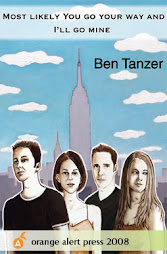

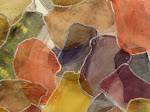









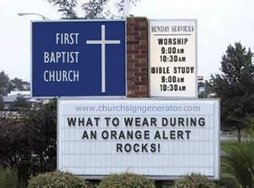


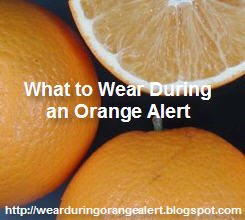


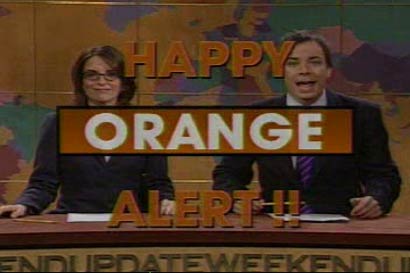

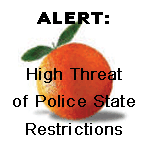
No comments:
Post a Comment